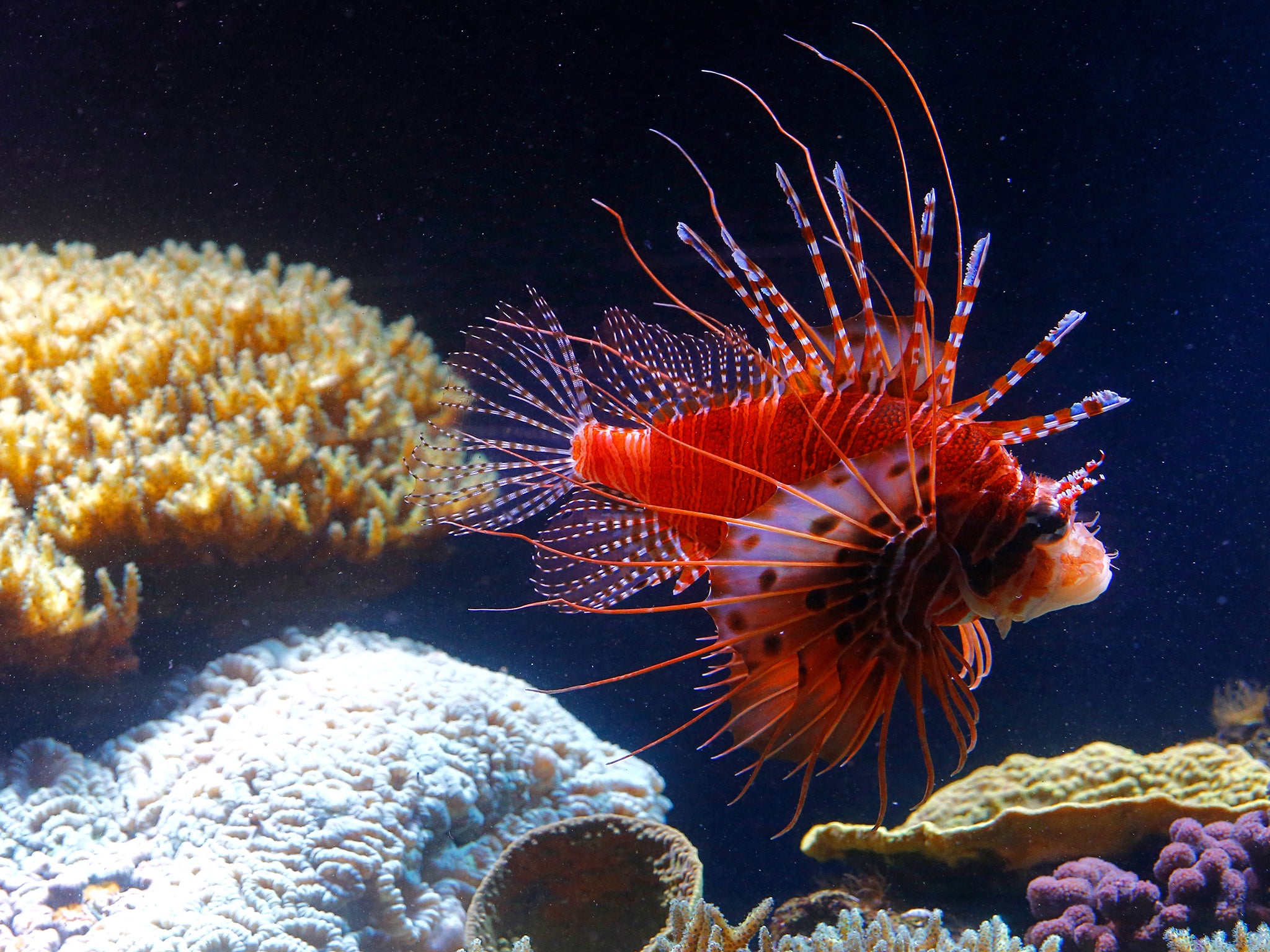Poisonous lionfish capable of killing humans could be spreading through Mediterranean
The potentially fatal Lionfish has been spotted in the waters around Turkey and Cyprus

Your support helps us to tell the story
From reproductive rights to climate change to Big Tech, The Independent is on the ground when the story is developing. Whether it's investigating the financials of Elon Musk's pro-Trump PAC or producing our latest documentary, 'The A Word', which shines a light on the American women fighting for reproductive rights, we know how important it is to parse out the facts from the messaging.
At such a critical moment in US history, we need reporters on the ground. Your donation allows us to keep sending journalists to speak to both sides of the story.
The Independent is trusted by Americans across the entire political spectrum. And unlike many other quality news outlets, we choose not to lock Americans out of our reporting and analysis with paywalls. We believe quality journalism should be available to everyone, paid for by those who can afford it.
Your support makes all the difference.A poisonous fish which has a sting strong enough to kill a human is invading the Mediterranean, warn conservationists.
The International Union for the Conservation of Nature (UICN) has raised concerns after the lionfish was spotted in the waters around Turkey, Cyprus and the eastern Mediterranean.
Native to the South Pacific and Indian Ocean, the potentially deadly fish has toxic barbs and an excruciating sting capable of killing people.
Although fatalities are rare, the stings can cause extreme pain, vomiting and respiratory paralysis.
The tropical fish, also known as the Devil Firefish, is a highly invasive and predatory species, and environmentalists fear its arrival could jeopardise other types of marine life.
It is thought the colourful fish’s presence may cause a knock-on effect on the delicate eco-systems.
After being spotted in the Med, Maria del Mar Otero, of the UICN, told AFP: "That shows that the fish is spreading, and that's a cause for concern.”
Despite being slow-moving and conspicuous, becasue even sharks avoid the fish they can roam in waters unchecked.
This can lead to the decimation of fish stocks which normally regulate algae, and attract new species due to the changes in flora and fauna.
Dr Carlos Jimenez, a marine biologist at the Cyprus Institute, said the species "could have a heavy negative impact on the ecosystems as well as on local economies".
The Lionfish was first recorded in Cuba in 2007, and within two years were commonplace in the waters.
After being introduced into the Caribbean it wreaked havoc on marine life, and The Association of Caribbean States organised a summit to discuss how to combat its encroachment.
Cuba, Columbia and the Bahamas now encourage locals to eat the fish, which is considered a delicacy in Japan, in a bid to keep their numbers low.
Cuba recently introduced an annual fishing tournament specifically targeting the species.
Join our commenting forum
Join thought-provoking conversations, follow other Independent readers and see their replies
Comments